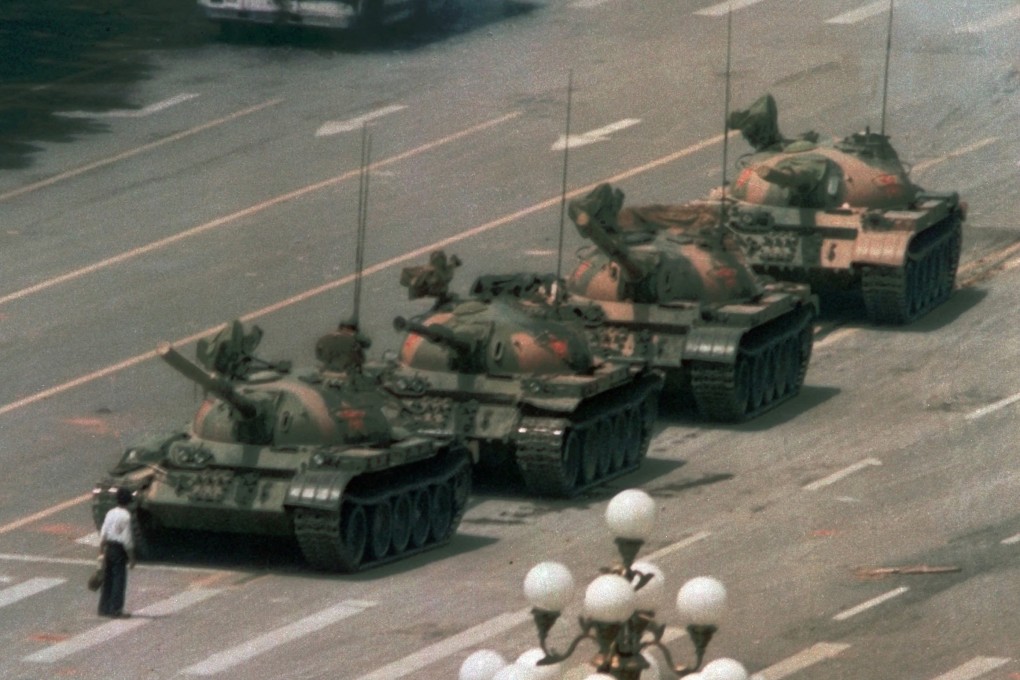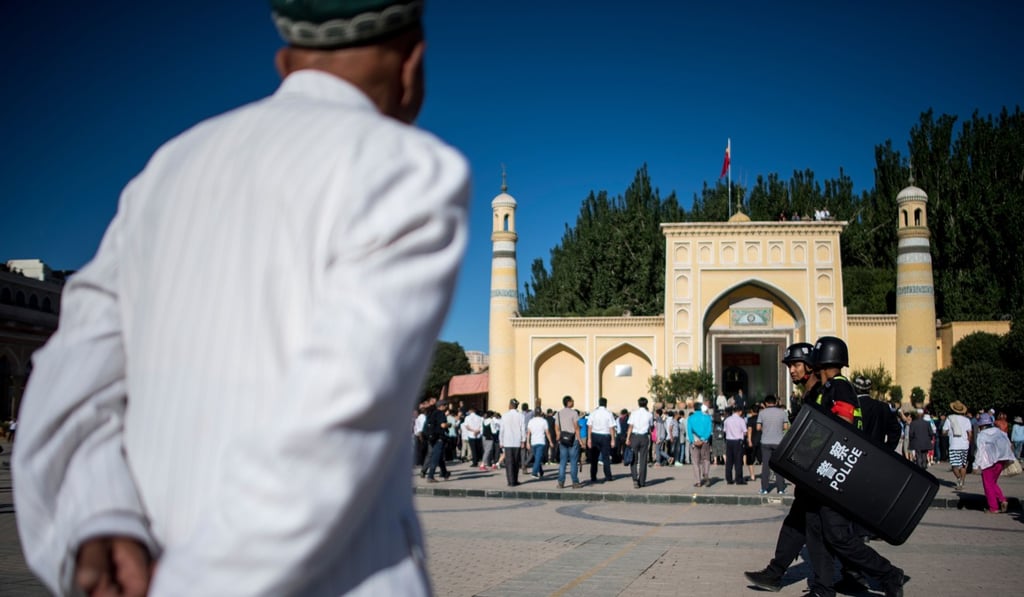Tiananmen Square crackdown, Xinjiang … China’s defence minister says Beijing got them both right
- Killing of hundreds of Chinese citizens in 1989 validated by nation’s economic successes in decades since, Wei Fenghe says at Shangri-La Dialogue
- Use of ‘vocational training centres’ in Xinjiang has improved people’s quality of life

China’s Defence Minister Wei Fenghe on Sunday defended Beijing’s handling of the bloody crackdown in Tiananmen Square in 1989 and its current use of “vocational training centres” in the far western region of Xinjiang, saying both were necessary to ensure the nation’s stability and development.
“People’s quality of life [in Xinjiang] has improved and they enjoy secure and stable lives,” he said in a question-and-answer session after his speech at the ongoing Shangri-La Dialogue in Singapore.
“Therefore China’s policy in Xinjiang is absolutely right.”
China’s rapid economic growth and its citizens’ improved living standards validated Beijing’s actions, he said.

On the use of so-called vocational training centres in Xinjiang, Wei said their only purpose was to prevent terrorism so that locals could enjoy the benefits of the region’s economic development.